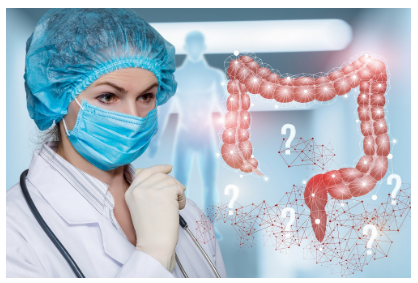预约演示
更新于:2025-05-07
Clostridium butyricum(Qingdao Eastsea Pharma)
酪酸梭菌活菌 (青岛东海药业)
更新于:2025-05-07
概要
基本信息
关联
5
项与 酪酸梭菌活菌 (青岛东海药业) 相关的临床试验ChiCTR2300071620
Immunotherapy combined with Clostridium butyricum tablets compare with immunotherapy for first-line immune maintenance stage in extensive small-cell lung cancer, a randomized, controlled, open-label, exploratory clinical study.
开始日期2023-06-01 |
申办/合作机构 |
ChiCTR2300070406
Clostridium butyricum live tablets prevents hepatic encephalopathy after transjugular intrahepatic portosystemic shunt in portal hypertension: a randomized controlled study
开始日期2023-04-15 |
申办/合作机构- |
ChiCTR2200057174
Efficacy and safety of glutamine combined with Clostridium butyricum in the treatment of hormone-dependent minor lesion nephropathy
开始日期2022-02-20 |
申办/合作机构- |
100 项与 酪酸梭菌活菌 (青岛东海药业) 相关的临床结果
登录后查看更多信息
100 项与 酪酸梭菌活菌 (青岛东海药业) 相关的转化医学
登录后查看更多信息
100 项与 酪酸梭菌活菌 (青岛东海药业) 相关的专利(医药)
登录后查看更多信息
2
项与 酪酸梭菌活菌 (青岛东海药业) 相关的新闻(医药)2023-05-18
·生物谷
抗炎联合酪酸菌制剂,消除IBD复发诱因
中国中西医结合学会炎症性肠病专委会主任委员 江学良
关键词:溃疡性结肠炎、克罗恩病、炎症性肠病、酪酸菌、阿泰宁
目前,我国炎症性肠病(IBD)的发病率正在快速增长,根据中国疾病预防控制中心预测数据,到2025年,我国IBD患者将突破150万人[1]。IBD患者发生结直肠癌的几率很高,肠癌也是导致IBD患者死亡的重要原因,所以IBD又被称为“亚肠癌”。
警惕慢性腹泻、粘液脓血便
IBD是一种慢性肠道炎性肠病,主要包括溃疡性结肠炎和克罗恩病。溃疡性结肠炎主要损害结肠和直肠,肠粘膜上有连续性的溃疡;克罗恩病多发于小肠末端和结肠,粘膜上的溃疡较深,不连续,像鹅卵石路一样,所以常发生肠狭窄、 IBD患者常出现严重的腹痛、腹泻、粘液脓血便、体重减轻,甚至丧失劳动能力,需要终身治疗,经济负担极重,给患者身心都带来巨大痛苦,患者多伴有焦虑、抑郁等精神问题。
IBD最大的痛点就是难治愈、易复发,一旦患上了,基本会伴随终身,随时有癌变的风险,所以,亟需找到最科学、有效的对因治疗措施,减少IBD的复发,帮助IBD患者远离肠癌,过上正常人的生活。
传统的治疗方式无法根治IBD
传统的IBD治疗思路基本就是“头疼医头、脚疼医脚”,普遍的治疗方式就是用氨基水杨酸类的药物、糖皮质激素、免疫抑制剂等控制IBD患者肠道的炎症,但是一停药,病情就会反复。
更严重的,就需要进行手术,溃疡性结肠炎常用的手术方式有全结肠切除后的回肠储袋肛管吻合术、回肠造瘘术等,进行回肠造瘘术的患者要随身携带收集粪便的袋子;多达50%的克罗恩病患者一生中需要进行至少一次手术,常用的就是把病变的肠道切除掉,再把两边的正常肠道连接在一起。
那这样做是不是就能一劳永逸、根治IBD了呢?
我从事IBD临床治疗与研究30多年,在5月7日的“首届中国肠癌源头防控高峰论坛”上,我对此做了回答,即使是把发炎、溃疡的结肠都切掉,把有炎症的粘膜都剥掉,再用正常的小肠做个储袋来代替,随之而来的就是,储袋也会发炎,发病的症状跟之前的溃疡性结肠炎是一样的。
由此可见,单纯的抗炎治疗或是手术切除发炎病变肠道只能是暂时控制症状,并不能避免复发,彻底根治,而且手术本身就是一种以损害身体为代价的治疗手段,如果能够找到发病根源并从根源上对因解决,才能最大限度的减轻患者的痛苦。
那么IBD患者肠道的炎症根源在哪呢?根源在IBD患者的基因易感和肠道的微生态环境出了问题,基因无法改变,只有通过控制肠道的微环境进行有效干预。
在临床上,经常发生IBD患者手术之后,原本正常健康的小肠储袋又发生IBD的症状,其原因就是手术后的小肠储袋出现菌群失调,有害菌增多,产生的毒素不断侵害储袋部位的肠粘膜,造成粘膜损伤,诱发了炎症,炎症久治不愈,逐渐演变为IBD,甚至肠癌[3]。
因此,在IBD的对因治疗中,需要一种能消除炎症、修复粘膜、调节肠道菌群、改善肠道微生态环境的微生态制剂。
抗炎联合酪酸菌制剂,消除IBD复发诱因
那么,该选用何种微生态制剂呢?国际医学研究发现,酪酸菌的代谢产物--酪酸(丁酸)才是肠粘膜再生和修复的重要营养物质[4],破损的肠粘膜的修复就需要酪酸,而且,酪酸能抑制NF-κB的活性来减少TNF-α和白细胞介素等炎症性因子的产生和释放,从而消除肠粘膜的炎症反应[5-7],另外,酪酸菌能通过产生的氢气来消除过度免疫产生的大量自由基和活性氧对机体的严重危害[8,9]。
基于以上研究结论,我们的团队做了大量的研究,选择了863创研成果—酪酸菌制剂阿泰宁用于联合治疗溃疡性结肠炎,研究[10]表明:阿泰宁联合美沙拉嗪治疗慢性反复发作型溃疡性结肠炎总有效率高达95%,完全缓解率高达75%,复发率比单用美沙拉嗪降低了4.43倍。阿泰宁既发挥了抗炎的作用,又修复了肠粘膜,与美沙拉嗪能协同增效。
因此,IBD患者在进行抗炎治疗的同时,应该联合阿泰宁,实现抗炎症的同时,改善肠道微生态环境,才能消除复发的诱因,大幅度减少IBD复发,从而远离肠癌。
这一点也跟国家医用微生态工程研究中心主任崔云龙教授在《微生态医学有望打破肠癌高发魔咒》一文中提出的“肠癌源头防控”新观点是非常契合的,IBD患者作为肠癌高发的一类人群,必须在抗炎治疗的同时运用酪酸菌制剂改善肠道内环境,炎症消除了,粘膜修复好了,肠癌自然也就远离了。
参考文献资料
[1] 中国疾病预防控制中心发布数据.
[2] 百度健康医典—炎症性肠病.
[3] Wong, SH and J Yu. Gut microbiota in colorectal cancer: mechanisms of action and clinical applications. Nat Rev Gastroenterol Hepatol, 2019, 16(11): 690-704.
[4] Scheppach W. Effects of short chain acids on gut morphology and function[J].Gut,1994,35:35-38.
[5] Meije K , Devo R, Priebem G. Butyrate and other short chain fatty acids asmodulators of immunity: what relevance for health[J]. Current Opinoin in Clinical Nutrition and Metabolic Care, 2010, 13(6):715-721.
[6] 胡卫,姜燕,沈志祥. 丁酸钠对醋酸诱导的大鼠结肠炎的治疗作用[J]. 医学导报,2000, 19(5):465-466.
[7] 张海强,李爱玲,乔刚,等.阿泰宁对噁唑酮诱导的大鼠结肠炎模型的治疗作用[J].世界华人消化杂志,2008,16(27):3036-3042.
[8] Zeynep Yilmazer Hitit, Carolina Zampol Lazaro , Patrick C. Hallenbeck. Increased hydrogen yield and COD removal from starch/glucose based medium by sequential dark and photo-fermentation using Clostridium butyricum and Rhodopseudomonas palustris[J]. International Journal of Hydrogen Energy, 2017, 42(30) : 18832-18843.
[9] Juliana Kawanishi Braga et al. Metals addition for enhanced hydrogen, acetic and butyric acids production from cellulosic substrates by Clostridium butyricum[J]. Biomass and Bioenergy, 2021,105: 105679.
[10]江学良,孙自勤,权启镇.阿泰宁联合美沙拉嗪治疗慢性反复发作型溃疡性结肠炎随机对照研究[J].中国全科医学,2008(17):1533-1535.

临床研究基因疗法
2023-04-14
·生物谷
国家医用微生态工程研究中心主任崔云龙基于30多年的人体微生态研究,提出的源头性防控策略为打破肠癌连年激增的局面提出了新的防控方向及路径。
一、肠癌已成为第二大肿瘤
据世界卫生组织国际癌症研究机构(IARC)发布[1],近年来我国肠癌发病人数激增已超过了肝癌、胃癌,成为严重威胁国人生命安危的第二大肿瘤。仅2020年新发肠癌人数就高达56万,死亡人数超过了28.5万,对比2015年的数据,肠癌的年新发病人数和死亡人数分别激增了44%和52%。据世界卫生组织国际癌症研究机构(IARC)预测,如果这种状况不加强防控的话,2025年我国新发肠癌人数可能会超过140万,成为威胁国人生命安危的第一大癌症。即每22秒就新增一名肠癌患者。若死亡率和2020年大体一致的话,则每44秒就会有一人死于肠癌。
在花费方面,肠癌的平均治疗费用超过10万元,更有甚者高达数百万元。但遗憾的是,即便花光了所有积蓄进行各种治疗,患者从确诊到死亡的平均生存时间也不足2年,因为80%的患者在确诊时已是中晚期,且有44%的患者已发生扩散。
在每年超过28万个鲜活的生命因肠癌而离世的同时,背后又有多少家庭因肠癌或一夜返贫、或支离破碎。
肠癌猛于虎,谈肠癌色变已非骇人听闻。
二、肠癌不降反增的困惑
众多重视健康的朋友感到十分困惑,为何生活水平越来越高、医疗技术越来越发达,可肠癌的新发病人数却不降反倒激增呢?
今年4月15日至21日是我国第29个全国肿瘤防治宣传周,足以说明30多年以来国家对癌症防治的重视。
目前,胃癌、肝癌在国家的高度重视,肿瘤专家、医药工作者及广大民众的共努力下,已呈逐年下降趋势,这值得高度肯定。
但目前肠癌发病人数逐年激增的现状,说明尚没有找到肠癌高发的根源及有效防控的措施。
多年来,一直把肠镜检查与息肉切除、基因与便潜早筛早发现早手术以及降低早筛年龄等作为防控肠癌的主要措施进行大力倡导、推广,确实起到了一定的作用。但从肠癌新发病人数和死亡人数逐年激增的数据看出,目前正在大力推广应用的这些防控措施并没有从根本上改变肠癌高发的严峻现状,这说明迄今尚未找到或认识到肠癌高发的根源,自然也就没防在根上。
三、肠癌高发的根源
对此,国家医用生态工程技术研究中心主任、中国微生态专委会副主任委员、中华预防医学会山东省微生态分会主任委员、山东省微生态临床肿瘤研究专家组副组长崔云龙教授指出:
国际医学界已经研究发现,肠癌的发生有两大原因,一是肠癌患者的基因易感(异常),二是肠癌患者的肠道内环境出了问题[2]。
目前的医疗技术水平及法规,尚不能也不允许对人体的基因做出改变,所以,能改变的只有肠道内环境。此外,即便是基因有些问题,但极少有人一出生就患上肠癌。患肠癌的年龄尽管有低龄化趋势,但50岁以上人群仍占了发病总数的90%以上,这一切迹象说明,尽管基因的些许异常与肠癌的发生有关,但只要肠道内环境不出问题,也不会过早患上肠癌。
国内外大量肠道微生态研究的结果证实,肠道菌群失调,产酪酸菌匮乏,脆弱拟杆菌、具核梭杆菌及致病性大肠杆菌等有害菌产生的大量毒素是诱发炎症、息肉丛生并恶变为肠癌的重要诱因[3][4],这些新发现,为肠癌的破解指明了方向。
微生态医学被国际医学界称为第三代医学。从历史沿革来看,第一代是传承了3000多年的中医;第二代是一百多年前传入我国的西医;第三代就是近些年崛起的微生态医学。微生态医学对传统的中西医而言,可以用换了“赛道”来比喻。
它通过运用基因组学、代谢组学、培养组学等大量现代生物技术研究发现了一个中医囿于技术瓶颈无法研究、西医囿于理论的限制而忽视的人体新系统,即第九大系统——人体微生态系统,从而揭开了医学与养生发展的新篇章,被国际医学界认为将给医学和保健带来一场革命。
微生态学医学研究发现,至少50多种目前临床上找不到病根、无能为力的大病、慢病的病根实际上是人体微生态系统出了问题。
人体微生态系统的基础是共生在人体肠道为主的,种类超过2000多种,数量超过百万亿,重量超过1.5公斤的庞大菌群王国。如此庞大的菌群构成的人体微生态系统,就如同以地表植被为主构成的地球生态系统。
要想有一个天蓝、地绿、水清的好环境,必须首先植树造林,建设好生态。“生态决定环境”已妇孺皆知,生态文明建设也已上升到国家战略层面。但“微生态决定健康”尚未被大众所认识,也不知道人体免疫力的70%以上是由人体微生态系统的重要组成部分肠道菌群决定的,更不知道决定人体胖瘦的代谢机能正常否也是由肠道菌群共同参与决定的。自然,也很少有人知道,肠道炎症、息肉以及肠癌的发生也是由于肠道菌群失调,酪酸菌匮乏[3][5],阳性大肠杆菌、弯曲杆菌、脆弱拟杆菌、具核梭杆菌等有害产毒菌大量繁殖,产生了如基因毒素(CDT)[3]、粪臭素、腐胺等至少32种导致大便臭气熏天的有毒有害物质诱发的[6]。
四、便臭与肠癌
我们平时吃的食物大都是新鲜、没有臭味的,可为什么吃到肚子里一二天后排出时就变成了臭气熏天的大便呢?
实际上就是寄生在我们肠道内的产毒有害菌造成的[7]。
我们知道,在夏天,若不把鱼、肉放进冰箱,裸露放置几天就会臭不可闻。究其原因是空气中大量有害菌落在鱼或者肉上,在将鱼或者肉吃掉的同时释放出了大量有臭味的物质,造成了臭气熏天。空气中能造成鱼、肉等食物腐烂变质的有害菌也会伴随着食物吃到我们的肚子里,以我们吃下的食物为食,并代谢释放出了大量有臭味的腐胺、氨以及基因毒素等,毒害肠道引起肠粘膜发炎、息肉丛生、甚至恶变为肠癌[7]。
这就是若不改变肠道内环境,即使做了息肉切除,过几年还会复发的原因。
溃疡性结肠炎也是如此,之所以,在单纯抗炎治疗缓解以后,仍会反复发作。其根源在于没有消除复发的诱因,没有同步改变肠道内环境造成的。
所以单纯抗炎治疗是治标,不是治本。
另一方面,即便是通过早筛早发现进行了肠癌手术,延长了患者的生存时间,但对肠癌患者的心身都已造成了重创。所以,这也不是上策,而是亡羊补牢。
五、肠癌的源头防控
微生态医学的这些重大新发现和研究成果,为我们从肠癌发生的源头入手采取防控措指明了方向。
更早期阶段的肠癌发病源头防控是从何时开始以及如何实施呢?
崔主任认为,应该从一遇冷凉酒辣就腹痛腹泻的肠易激综合征和慢性腹泻阶段进行对因科学治疗开始,从溃结(UC)和克罗恩病(CD)的抗炎治疗与用微生态制剂同步改变内环境开始,从慢性便秘停止滥用含蒽醌的通便产品开始。
上述肠道疾病的发生发展都伴随着肠粘膜营养障碍及炎症的发生,若未站在肠道微生态角度,从改变内环境入手进行对因治疗就会造成久治不愈,把粘膜炎症拖成了息肉丛生、复发,为肠癌的高发埋下了祸根。加之长期滥用杀菌消炎药,误治造成肠菌群失调后、弯曲杆菌、脆弱拟杆菌等有害菌大量滋生,它们产生的毒素进一步加速了癌变[3]。
也有学者研究指出[8],患肠易激一年后就使其患肠癌的风险升高了6倍,何况目前还有大量的肠易激患者或不重视、或了解对因治疗而造成久治不愈,更为目前肠癌的高发提供了大量的癌前人群基数。
另外,众多便秘患者长期应用含蒽醌的通便类产品造成了肠道黑变病,也为肠癌的高发埋下了隐患。
俗话说,打蛇打七寸,擒贼先擒王。要想彻底远离肠癌,就必须充分运用微生态理论,杜绝肠息肉增生的源头——肠粘膜炎症。要消除粘膜炎症,就必须高度重视,并对因科学治疗慢性腹泻、肠易激、慢性便秘、溃结及克罗恩病,终止滥用杀菌消炎药对肠道菌群的破坏、或单纯抗炎忽视肠内环境的同步改变,及含蒽醌的通便类产品对肠道粘膜伤害开始。
为什么有的医生和患者不知道对因进行科学治疗而还在误诊误治呢?
这是因为以前囿于医学技术发展的历史局限性,对肠道微生态的不了解,造成从临床医学理论层面上就未找到慢性腹泻、肠易激综合征的病根,而将其称之为“不明原因腹泻”。
既然原因不明,自然也就不能对因治疗。所以,广大的慢性腹泻和肠易激患者大都遭受了用尽各种中西抗菌消炎药、芦荟和番泻叶等含蒽醌的通便产品,却不仅不见效,还越治越重的痛苦折磨。其中有的患者虽然遭受了越治越重的痛苦折磨,但庆幸没有恶变为肠癌,还有一些没有那么幸运的患者,就因长期误治造成了息肉丛生、复发,乃至恶变为肠癌,失去了生命。
东海药业科研工作组通过大量的动物实验及临床研究,发现一遇冷凉酒辣刺激就腹痛腹泻的肠易激综合征,以及更严重的慢性腹泻的病根实际上是肠道菌群失调,尤其是酪酸菌匮乏造成的。
酪酸是肠粘膜再生修复的重要营养物质,若匮乏,不仅会造成肠粘膜营养障碍,而更严重的是,会造成被有害菌损伤发炎的肠粘膜得不到及时修复。炎症得不到及时消除,从而引起了炎症因子和五羟色胺过度表达,脑肠菌轴异常,致使肠功能紊乱,对冷凉酒辣等刺激过度敏感而腹痛腹泻,甚至因久治不愈恶化为肠癌。
黄曦、于君教授于《Nature Reviews》发表的“结直肠癌中的肠道菌群(从机制到临床)”一文中也明确指出“与肠道菌群密切相关的一类主要代谢物是短链脂肪酸(SCFAs,如丁酸盐和丙酸盐),低SCFAs水平与高CRC风险有关”[3]。
也有大量的研究结果证实,大黄、芦荟、番泻叶、何首乌等具有通便作用的草药虽然植物名称不同,但有效成分均为蒽醌。长期饮用,不仅会使肠道失去蠕动功能,更为严重的是造成肠道黑变病,诱发肠息肉、肠癌。
六、国家863成果守护国人肠道健康
基于对酪酸梭菌的研究发现,东海药业科研工作组在国家863项目的支持下,率先创研出了能对因补充酪酸菌的微生态新药:阿泰宁、爽舒宝。
阿泰宁、爽舒宝双双获得了中美双发明专利授权,并经临床研究证实,阿泰宁治疗慢性腹泻和肠易激综合征的总有效率分别达到了100%和99.2%,总治愈率和完全缓解率分别是97.14%、97.5%[8][9]。
共和国勋章获得者、“杂交水稻之父”的袁隆平院士是严重慢性腹泻加肠易激综合征的典型案例。他平时每天腹泻2-3次,在遇冷受凉等刺激后会加重到每日4-5次,甚至6-7次。在用阿泰宁治疗之前的27年间,尝试了各种抗菌药、中医药以及其他的活菌制剂,花费不菲,但因未对因服用酪酸菌制剂,病情愈演愈烈。
微生态新药酪酸菌制剂制剂——阿泰宁治疗慢性腹泻和肠易激综合征的有效作用机理是特殊工艺生产的阿泰宁,能耐受胃酸,顺利进入肠道后能大量分泌酪酸,它是肠粘膜修复所需的第一营养物质。酪酸具有快速修复受损的肠粘膜,消除炎症,恢复肠功能的重要作用,其功效被写入国家食药总局批准的阿泰宁使用说明书中[10]。
黄曦、于君教授在《Nature Reviews》发表的“结直肠癌中的肠道菌群(从机制到临床)”一文中也明确指出“丁酸(酪酸)盐作为一种抗炎分子,可抑制结肠上皮细胞和免疫细胞中的组蛋白脱乙酰酶,下调促炎细胞因子,诱导CRC细胞凋亡。此外,丁酸盐和丙酸盐已被证明可以调节结肠调节性T细胞,从而在动物模型中发挥有效的抗炎作用。”[3]。
炎症消除,受损的粘膜被修复,肠息肉自然不会增生,肠癌也就远离了。
对于便秘患者来讲,应尽快停下含蒽醌类通便产品的使用,改用益生菌膳食纤维类产品如昶乐康、爽舒宝等就能避免肠道黑变病从而远离肠癌。
所以,从肠癌发病通路上讲,这都应归属于运用微生态医学理论开展的源头性防控。因此,迫切需要大力科普肠道微生态知识,让全社会都尽早了解肠癌高发的根源,并开展源头防控,才能卓有成效的远离肠癌。
七、为了国人健康,要敢于讲真话
崔主任进一步指出:为了打破目前肠癌激增严重威胁国人健康的严峻局面,也为了打破世界卫生组织国际癌症研究机构(IARC)预言的“魔咒”,我们必须敢于讲真话,敢于揭开肠癌高发的真相,重新审视以往的肠癌防控策略和措施,才有助于找到肠癌的根源,突破高发的困境。这一点希望能引起各级卫健委、医保局、肿瘤专家及广大注重肠健康人士的重视与重新思考。
良药苦口利于病,忠言逆耳利于行。
国家医用微生态工程研究中心主任崔云龙基于30多年的人体微生态研究,提出的源头性防控策略为打破肠癌连年激增的局面提出了新的防控方向及路径。也完全契合国家大力倡导的“防重于治”医疗健康理念,值得引起其高度重视。
(责编:泽民)
参考文献资料:
[1] 世界卫生组织国际癌症研究机构(IARC)发布。
[2]Long X, Wong C C, Tong L, et al. Peptostreptococcus anaerobius promotes colorectal carcinogenesis and modulates tumour immunity[J]. Nature microbiology, 2019, 4(12): 2319-2330.
[3] Wong, SH and J Yu. Gut microbiota in colorectal cancer: mechanisms of action and clinical applications. Nat Rev Gastroenterol Hepatol, 2019, 16(11): 690-704.
[4] 2023年3月23日,上海交通大学房静远、洪洁及陈豪燕共同通讯在《Cell Metabolism》在线发表题为“Urea cycle activation triggered by host-microbiota maladaptation driving colorectal tumorigenesis”的研究论文
[5]李雄彪等.《酪酸梭菌-肠道健康的卫士》复旦大学出版社,2008.
[6]崔云龙.便臭中毒综合征[J].《中国微生态学杂志》,2006,18(5):420-420.
[7]崔云龙.《健康长寿新发现》青岛出版社,2018.
[8] Wu X, Wang J, Ye Z,etal. Risk of Colorectal Cancer in Patients With Irritable Bowel Syndrome: A Meta-Analysis of Population-Based Observational Studies[J]. Front Med (Lausanne),2022, 9:819122.
[9] 张梅,彭国球,孙樱,等.阿泰宁治疗冷凉、喝酒性腹泻35例疗效观察[J].中国微生态学杂志,2008,20(2):169-170.
[10] 江学良,姜开通,许刚.酪酸梭菌活菌胶囊治疗腹泻型肠易激综合征的临床疗效及卫生经济学评价[J].中国微生态学杂志,2016,28(9):1075-1079.
[11] 阿泰宁药品使用说明书(见国家食药总局网站)。

临床研究
100 项与 酪酸梭菌活菌 (青岛东海药业) 相关的药物交易
登录后查看更多信息
研发状态
批准上市
10 条最早获批的记录, 后查看更多信息
登录
| 适应症 | 国家/地区 | 公司 | 日期 |
|---|---|---|---|
| 腹泻 | 中国 | 2004-11-26 | |
| 消化不良 | 中国 | 2004-11-26 | |
| 肠易激综合征 | 中国 | 2004-11-26 |
未上市
10 条进展最快的记录, 后查看更多信息
登录
| 适应症 | 最高研发状态 | 国家/地区 | 公司 | 日期 |
|---|---|---|---|---|
| 溃疡性结肠炎 | 临床前 | 中国 | 2004-11-26 |
登录后查看更多信息
临床结果
临床结果
适应症
分期
评价
查看全部结果
| 研究 | 分期 | 人群特征 | 评价人数 | 分组 | 结果 | 评价 | 发布日期 |
|---|
No Data | |||||||
登录后查看更多信息
转化医学
使用我们的转化医学数据加速您的研究。
登录
或

药物交易
使用我们的药物交易数据加速您的研究。
登录
或

核心专利
使用我们的核心专利数据促进您的研究。
登录
或

临床分析
紧跟全球注册中心的最新临床试验。
登录
或

批准
利用最新的监管批准信息加速您的研究。
登录
或

特殊审评
只需点击几下即可了解关键药物信息。
登录
或

生物医药百科问答
全新生物医药AI Agent 覆盖科研全链路,让突破性发现快人一步
立即开始免费试用!
智慧芽新药情报库是智慧芽专为生命科学人士构建的基于AI的创新药情报平台,助您全方位提升您的研发与决策效率。
立即开始数据试用!
智慧芽新药库数据也通过智慧芽数据服务平台,以API或者数据包形式对外开放,助您更加充分利用智慧芽新药情报信息。
生物序列数据库
生物药研发创新
免费使用
化学结构数据库
小分子化药研发创新
免费使用
